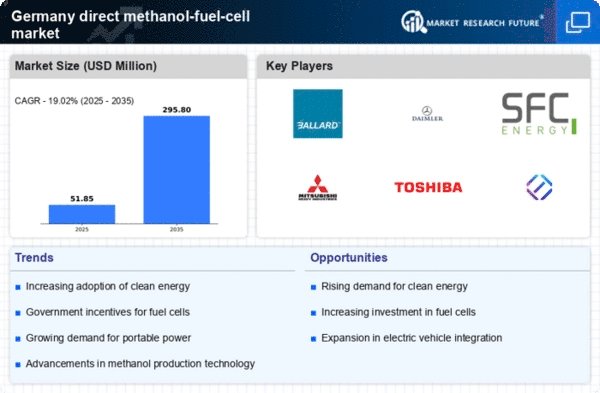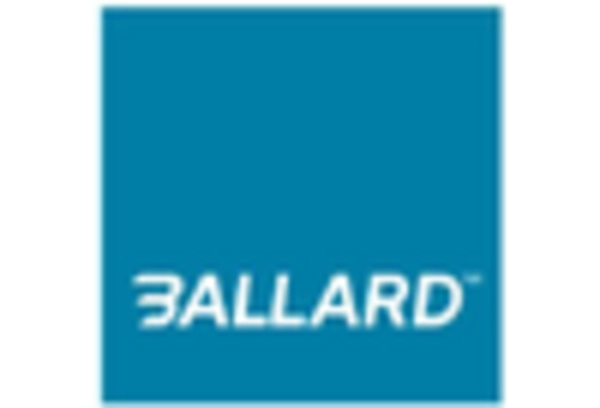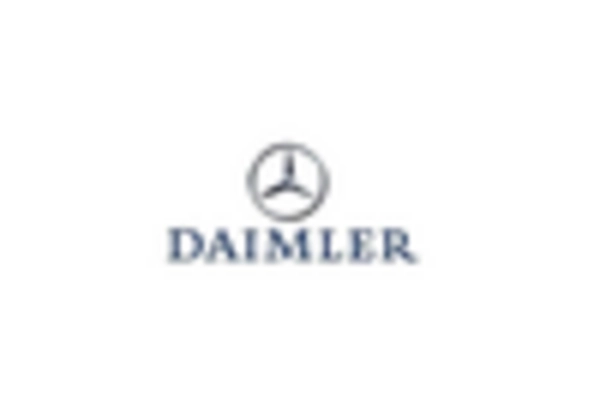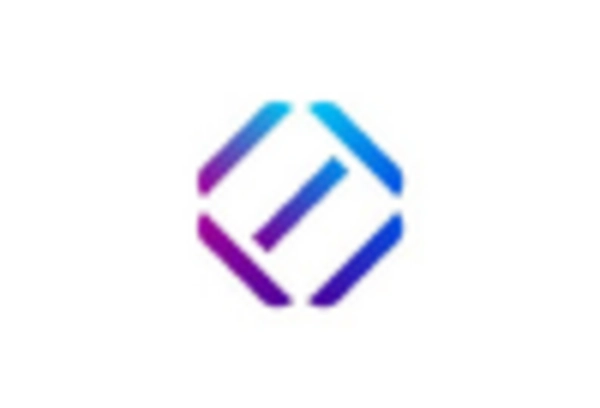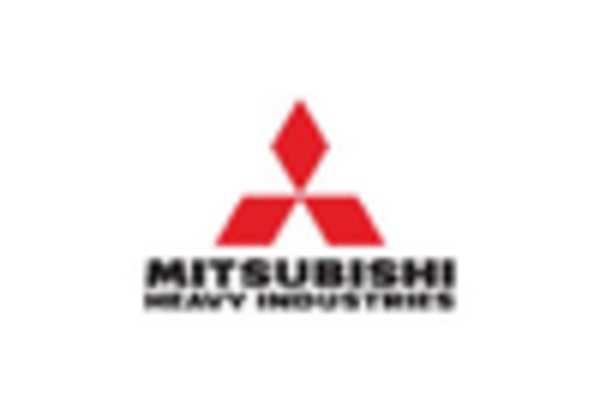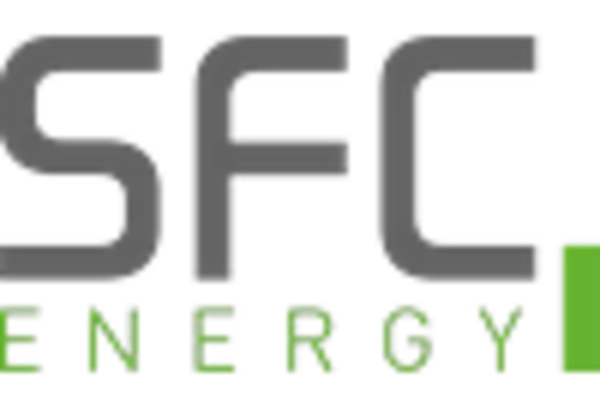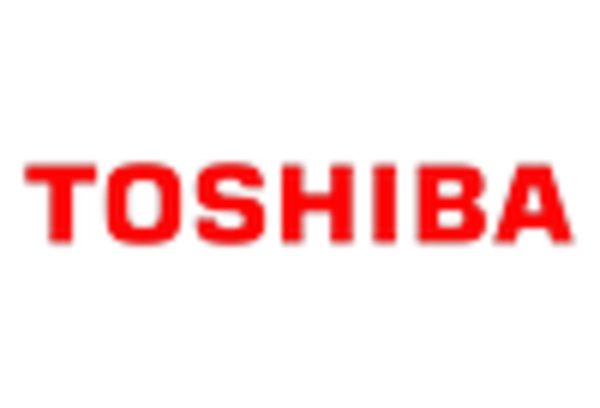Focus on Sustainable Energy Sources
Germany's commitment to sustainability is significantly influencing the direct methanol-fuel-cell market. The country has set ambitious targets for reducing greenhouse gas emissions, aiming for a 55% reduction by 2030 compared to 1990 levels. This regulatory environment encourages the adoption of clean energy technologies, including direct methanol fuel cells, which are recognized for their low emissions and high efficiency. The market is expected to benefit from government incentives and subsidies aimed at promoting sustainable energy solutions. As a result, The direct methanol-fuel-cell market is likely to see increased investments and advancements in technology, aligning with Germany's broader energy transition goals.
Advancements in Fuel Cell Technology
Technological innovations are playing a crucial role in shaping the direct methanol-fuel-cell market in Germany. Recent advancements in fuel cell efficiency and durability have made these systems more attractive for various applications, including automotive and stationary power generation. Research indicates that the efficiency of direct methanol fuel cells has improved by approximately 20% over the past few years, enhancing their competitiveness against other energy sources. This progress is likely to stimulate further research and development efforts, fostering a more dynamic market environment. As technology continues to evolve, the direct methanol-fuel-cell market may witness a broader adoption across different sectors.
Growing Interest from Automotive Sector
The automotive industry in Germany is increasingly exploring alternative fuel technologies, including direct methanol fuel cells. With the push for cleaner transportation solutions, manufacturers are investigating the potential of fuel cell vehicles (FCVs) to meet stringent emissions regulations. The direct methanol-fuel-cell market stands to benefit from this trend, as these systems offer a viable option for reducing the carbon footprint of vehicles. Industry reports suggest that the market for fuel cell vehicles could reach €10 billion by 2027, highlighting the potential for growth in the direct methanol-fuel-cell market as automotive companies invest in this technology.
Integration with Renewable Energy Systems
The integration of direct methanol fuel cells with renewable energy systems is emerging as a key driver for the market in Germany. As the country increases its reliance on renewable energy sources, such as wind and solar, the need for efficient energy storage solutions becomes paramount. Direct methanol fuel cells can serve as a bridge, converting excess renewable energy into storable fuel. This synergy not only enhances energy security but also supports the transition to a low-carbon economy. Analysts predict that the market for energy storage solutions, including direct methanol fuel cells, could grow by 30% over the next decade, indicating a promising future for this technology.
Increasing Demand for Portable Power Solutions
The direct methanol-fuel-cell market in Germany is experiencing a significant increase in demand for portable power solutions. This trend is driven by the growing need for reliable energy sources in various applications, including consumer electronics and military operations. As consumers seek lightweight and efficient alternatives to traditional batteries, the direct methanol-fuel-cell technology appears to offer a compelling solution. The market for portable power is projected to grow at a CAGR of approximately 15% over the next five years, indicating a robust opportunity for manufacturers. This increasing demand is likely to propel innovation and investment in the direct methanol-fuel-cell market, as companies strive to meet the evolving needs of consumers and industries alike.


